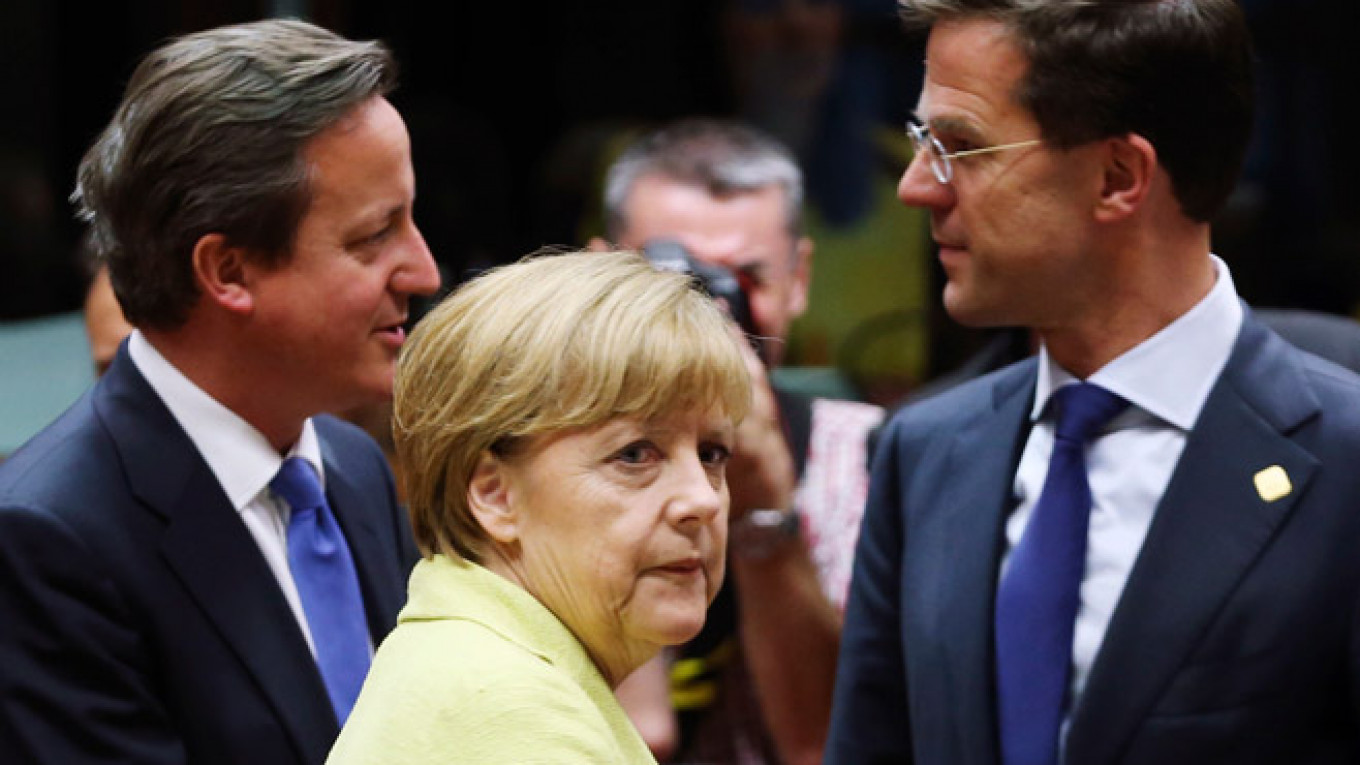From the start, the European integration project has been based on accommodation and compromise, on rules and laws rather than confrontation. It was founded not as a zero-sum game but as a universally beneficial project.
This may have contributed to the American view of Europe as weak and unwarlike. But this view is unfounded: Throughout their history, Europeans honed their fighting spirit and skills in incessant wars among themselves and against invaders. Europe dominated the other, larger continents, settling them with its emigrants.
But after suffering two bloody wars, revolutions, dictatorships and the near-collapse of its civilization in a single generation, Europeans decided to try something different. The EU has been the most successful international project since the Roman Empire. But it is now under threat from Russian imperialism and is weakened by the decline of U.S. power.
Since its foundation the continent has largely been at peace and has achieved unprecedented prosperity. Most neighbors of the inner-six founder states have joined the European Union, and a war between Germany and France is now inconceivable.
Brussels has kept the lid on a number of simmering conflicts across Europe and diffused those that did break out by promising the combatants a place in a united Europe. It is no surprise that few Europeans, for all the baying by various militarists, want to abandon it and try war instead.
However, Europeans are being pushed to abandon their successful model by factors beyond their control. The main culprit is the revival of the idea of a "Russian civilization," but the decline of U.S. power and political divisions within the United States are also crucial.
There are plenty of reasons that U.S. President Barack Obama has been so ineffective: Internationally he appears to be well out of his depth, and at home his approval ratings are dismal. In part because of Obama's notorious pivot to Asia, Europeans are not convinced that Washington will live up to its obligations to defend Europe.
However, more fundamentally, European leaders are watching with alarm as the U.S. becomes more and more ungovernable. Washington is preoccupied with abortion, guns and religion, and is turning away from the science and culture of the modern world. No one, it seems, wants to pay to keep the federal government running. And last week Congress voted on an unprecedented measure to sue the president. The U.S. is no longer a reliable partner.
With Russia and the U.S. returning to the 19th century, Europe too is sliding back to the old arrangement, in which nations constantly jockeyed for position, allying themselves with or against strong powers, depending on the situation and self-serving calculations. This precarious arrangement lead to the disastrous World War I.
As in 1914, Germany is the dominant power in Europe. Having successfully negotiated its way through the euro-zone crisis while simultaneously bankrolling many other less fortunate countries, its economic and political position is very strong. But, as occurred exactly 100 years ago, Germany finds itself facing a newly assertive Russia.
However, Germany does not have a strong incentive to challenge Russia this time around. Germany lacks a strong military and does not want to be responsible for weak EU members if a new Cold War creates another economic downturn.
Germany also fears being abandoned by Britain and France, which have their own arrangements with Russia and are more geographically removed from Putin's mini-wars. France wants to keep selling Russia its navy boats, and Britain, for all of David Cameron's tough rhetoric, relies on Russia's capital flight.
Germany therefore may use its diplomatic back channels to Putin to try to find a compromise on Ukraine, a kind of separate peace that, unless sanctions have the desired effect, may be the only way to solve the months long crisis.
The MH17 tragedy may finally have triggered a unified response from the EU, but cracks in the European project have appeared and will be difficult to repair.
Alexei Bayer, a native Muscovite, lives in New York. His detective novel "Murder a the Dacha" was published by Russian Life Books in 2013.
A Message from The Moscow Times:
Dear readers,
We are facing unprecedented challenges. Russia's Prosecutor General's Office has designated The Moscow Times as an "undesirable" organization, criminalizing our work and putting our staff at risk of prosecution. This follows our earlier unjust labeling as a "foreign agent."
These actions are direct attempts to silence independent journalism in Russia. The authorities claim our work "discredits the decisions of the Russian leadership." We see things differently: we strive to provide accurate, unbiased reporting on Russia.
We, the journalists of The Moscow Times, refuse to be silenced. But to continue our work, we need your help.
Your support, no matter how small, makes a world of difference. If you can, please support us monthly starting from just $2. It's quick to set up, and every contribution makes a significant impact.
By supporting The Moscow Times, you're defending open, independent journalism in the face of repression. Thank you for standing with us.
Remind me later.






